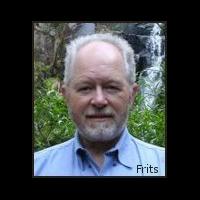المشاركات: 7
لغة: English
savu (عرض الملف الشخصي) 27 أكتوبر، 2017 12:39:23 ص
I've been going through the course here and I've very much enjoyed learning Esperanto =)
However, there's something I don't quite understand. At the part 7 of the course there's an exercise about endings with the following sentence:
Mi ne aŭdas vin, ĉar estas brue en la malgranda ĉambro.
Why is "brue" the correct answer? I'd think that "bruo" would work there just fine but there's obviously something I don't get
 Could someone explain this to me, please?
Could someone explain this to me, please? noelekim (عرض الملف الشخصي) 27 أكتوبر، 2017 2:22:54 ص
estas brue in the ĉambro - it is noisy in the room (there are various noises)
So both sentences are good, but they have slightly different meanings.
savu (عرض الملف الشخصي) 27 أكتوبر، 2017 9:03:56 م
NoordZee (عرض الملف الشخصي) 1 نوفمبر، 2017 1:29:50 ص
noelekim (عرض الملف الشخصي) 1 نوفمبر، 2017 3:37:22 ص
That's exactly why we say "Uf, estas varme hodiaŭ!", because the subject - "la vetero" or "la temperaturo" - is missing.
nornen (عرض الملف الشخصي) 1 نوفمبر، 2017 5:53:00 ص
Zamenhof: Lingva Respondo:En la tempo, kiam estis verkata la “Dua Libro”, la demando, ĉu oni devas diri “estas varme” aŭ “estas varma”, ne estis ankoraŭ absolute decidita kaj la uzado de unu formo estis egale bona, kiel la uzado de la dua. Nun tiu ĉi demando iom post iom per la uzado akceptis jam decidon pli difinitan. La adjektivo difinas la substantivon aŭ la pronomon havantan sencon de substantivo (responde la demandon kia) kaj la adverbo difinas la verbon (responde la demandon kiel). Tial ni diras: “la vetero estas bona”, “li kantas bone”. Tamen en la okazoj, kie la difino apartenas precize nek al substantivo aŭ pronomo, nek al verbo, ni ofte ne povas decide diri, kian demandon (kia aŭ kiel) nia difino devas respondi kaj kian formon ni devas uzi. En ĉiu alia lingvo tiu ĉi duba demando estas decidata per la sankcio de l’ uzado, — en nia lingvo ni konsilas uzadi en tiuj okazoj ĉiam la adverbon; ekzemple: “estas varme”, “estas vere”, “ĝi estas vera”. La vorton “ĝi” ni konsilas ĉiam uzi nur por anstataŭi objekton aŭ aferon (kiel “li” anstataŭas personon); sed en esprimoj senpersonaj kaj senobjektaj ni konsilas neniam uzi la vorton “ĝi” (ekzemple: “hodiaŭ estas varme” kaj ne “hodiaŭ ĝi estas varme”).
Bellimum (عرض الملف الشخصي) 6 ديسمبر، 2017 6:21:37 ص
NoordZee:I believe that, if there is no subject, such as 'estas brue en la ĉambro', 'brue' is treated as an adverb. If, on the other hand, you say: "Ĉi tiu strato estas brua", 'brua' modifies 'strato'.
noelekim:That's exactly why we say "Uf, estas varme hodiaŭ!", because the subject - "la vetero" or "la temperaturo" - is missing.NoordZee and noelekim, thank you for this! That is exactly what I came to the forums to ask about, because I'm familiar with using an adjective in that kind of case in English, as if there's an implied noun. It'll be weird to get used to, but that cleared up my confusion with some other material I've been reading.


